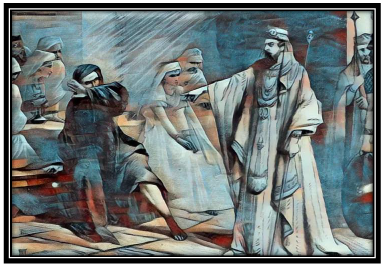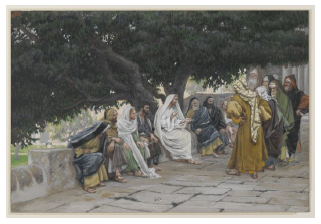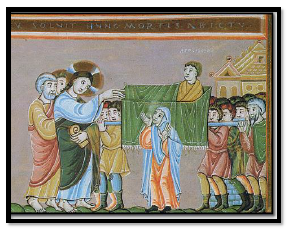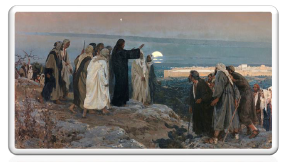Jesus said, “Many are invited but few are elected.”
Do you remember how Jesus explains the parable we just heard? Me neither. That is because this is one of those that Jesus doesn’t explain. He gives the parable and keeps on talking. Most of the time it’s not a big deal. This is one of those times it’s not a big deal – the explanation of the parable is pretty obvious when we consider it in light of the rest of the Scriptures….For more, click on the ttile above
Tag: Vicar Spangler
Hidden Teachings
Jesus indicates that there is not one greatest commandment but two commandments which not only sum up the teaching of God in the Old Testament but form the heart of all biblical teaching. Why is it these two commandments are singled out? Are these commandments Law or are they Gospel? If they are Law, do they stand against Christ and His Christians to condemn first Christ as He would hang upon the tree or the Christian as they fail to live up to those commands? …For more, click on the title above.
Death, now God’s servant
Our liturgy praising the God of Light is contrasted, in today’s reading, with a liturgy of darkness; our multitude’s joy with one’s weeping; our thanksgiving at receiving the things of God with one’s supplications at a nearly unfathomable loss – as God has received back the soul of an only son. Death is not natural, nor does it come from nature. Death is not a “fact of life,” as if a natural termination – a period at the end of a sentence. Jesus does not bear with death. Our God has no patience for death. Death is God’s hated enemy. They are not adversaries, one warring against the other, rather, they are opposites. Death is the opposite of our God and He hates it….For more, click on the title above.
We are not pagans
There are five men in our text today. The lawyer, the man from Jerusalem, the good Samaritan, the priest, and the Levite, but only two of them speak. One speaks out of self-righteousness and the other speaks rightly. What we are called to learn from the text today is this: We are the man coming from Jerusalem. Jesus is the good Samaritan. And the thieves are our sins and iniquities. Further, if we attempt to justify ourselves, we become the priest and the Levite….For more, click on the title above
Jesus works in His temple to bring sight and peace
In our text today we hear Jesus’ reaction to Jerusalem after His entry, which the church celebrates on Palm Sunday. Jesus knew what He would find. These are not the words of a man who is shocked. Rather, these are the words of a father who is grieved by the state of his child. Jesus weeps over the city for two reasons: her blindness to the things of peace and the wickedness that she has been working in her blindness. These are tears of pity intermingled with his kindness for knows what must take place for her redemption. …For more, click on the title above.





